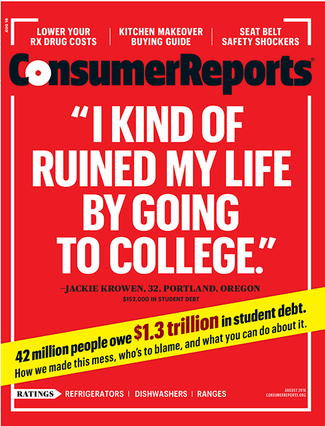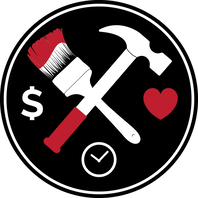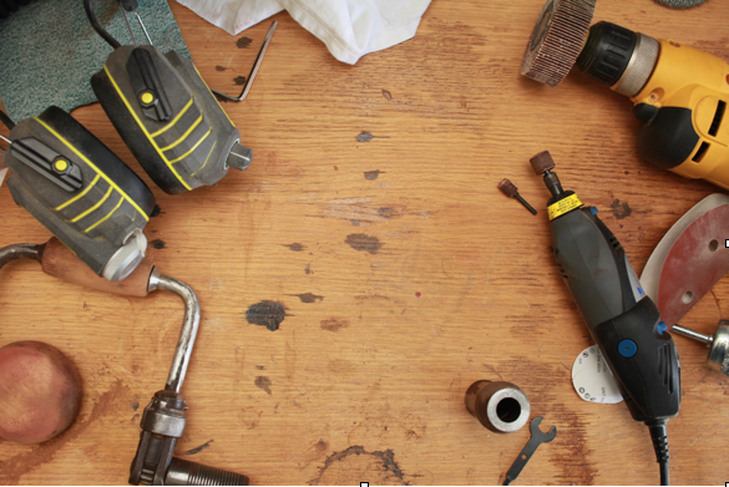|
Guest Post by Gloria Martinez. As a woman in the painting and contracting field, you’re likely to encounter naysayers just for being female in a male-dominated industry. And being a woman who also owns a business puts you in yet another group where you’re in a minority.
So how do you take on the naysayers and achieve your goals anyway? Equip yourself with the right resources and strategies for overcoming those obstacles...
1 Comment
I've been reading a lot lately about starting where you are. Working with your current reality.
If you have been running a painting business for a while and are looking for new opportunities, where should we first look? Sometimes we need a change. 'A change is as good as a rest', goes the saying. Perhaps our personality thrives on novelty and challenge. Maybe we are stuck in a rut. Or, our circumstances demand that we force a change. Change can be stressful. Tim Ferris nicely summarized our intrinsic fear of change - 'most people choose unhappiness over uncertainty'. So what is one effective way to incorporate changes while working with what we currently have? Article by Seth Murphy
Tackling home improvement projects on a house you are about to sell can seem complicated. You have to anticipate what buyers want, make your house seem as universally appealing as possible and may not have the satisfaction of using your redecorated spaces. Nevertheless, it’s worth it. The average home improvement can increase the value of your home by 9 percent. Depending on what projects you do, you may not have to spend that much money to get your house looking in top shape. Here are the main home improvement projects you need to consider if you want to increase the value of your property... Many opportunities await a hard working and self-motivated young person who is interested in starting a painting business...
In an earlier post, I discussed the importance of Respecting Capacity.
But I've come to appreciate another facet of capacity that relates to our business - viewing capacity as an asset in your business and leveraging it for maximum profit. Used to be that I got nervous if I was booked up for less than 3 weeks in advance. I was used to being booked 6 - 12 weeks out and that demand felt good, felt secure. But these days... Realized today as I was working on a ladder most of the day, and working under an old deck too, that painting has helped me overcome two of my biggest phobias.
I used to be really scared of spiders, but working on exteriors in the Okanagan Valley where the Black Widow, Brown Recluse and Wolf spiders thrive, eventually provided enough exposure therapy to dull the panic attacks. Look close enough in any yard and you are likely to find one. Best just not look, and keep on painting ‘cause you ain’t getting paid till that section behind the bushes is done. Oh, and don’t forget that area under the deck...dang...  As a former high school drop out, it is not my place to say that getting a degree is a bad idea. However, it is clear that education is changing fast and that the cost:value ratio of traditional post-secondary institutions is becoming more of a burden than an asset for many students. Technology, industry and economic shifts are developing so fast that a 4-year program is sometimes obsolete by the time you graduate. The skills that seem to be valued in the current job market are adaptability, life-long learning, working with others, project management, entrepreneurial skills, value creation (rather than getting paid to 'show up'), problem solving, social influence and so on. It is a dynamic work-scape out there, with few guarantees or long term commitments on both sides of the employer/employee divide. I'm definitely not an expert on any of these issues. And there is no question that some types of post-secondary training can lead to higher paying work. Having a basic high-school education these days doesn't open a lot of career doors. I just thought it would be practical to think about whether starting a painting business is a viable option for a young person, as opposed to pursuing 'higher education'. The cover story on the August 2016 issue of Consumer Reports stated that 42 million people owe $1,300,000,000,000 in student debt. While many countries around the world offer free education, in North America adult students are drowning in deep pools of debt. Is it a wise investment? Jackie Crowen, aged 32, from Portland Oregon, with $152,000 in student debt is quoted as saying "I kind of ruined my life by going to college." Let's play with some numbers... If she attended school for 10 years, that is an average of $15,000/year in debt. If she had worked instead of attending school during those years, lets assume she could have earned an extra $15,000/year in earnings. That is $300,000 over 10 years that she is behind someone who didn't attend school and started painting full time, earning $30,000/year. How many years will it take her to catch up? If she gets a job paying 50% more because of her education, it would take 20 years! But that is assuming she doesn't end up working at Starbucks, as many highly educated people do. You sometimes end up over-qualified for entry-level professional jobs while lacking experience required for middle-tier professional positions. And that is assuming her skills and education are even still relevant after all that. Now there are other factors to consider... Most jobs are susceptible to scope creep. That's when the project description that you originally bid on grows once you start.
"Can you paint a few of the doors as well? We tried cleaning them and a few of them are going to need a fresh coat." "The designer needs to change some of the colours. This scheme isn't working for the client." "My husband tried to do the soffits himself but he almost fell off the ladder. We're going to need you to do those as well if you could." How do you react in these situations? Does your heart rate increase? Do you feel frustrated? A couple of suggestions... If making a good first impression is the most important 5% of a job, finishing is the hardest 5% of a job. The way the job ends will be what is most vividly remembered by your client.
At this point you may be tired, behind schedule, over budget, getting impatient, feeling discouraged, etc. You just want it to end, so you can get on with your life... Many of us have used a 'Pros and Cons' list to help us make an important decision. But is it the best way to come to a wise decision?
We could make a pros and cons list of using a pros and cons list, just for fun... PROS - provides a thorough dissection of the significant factors - gets all the ideas out of your head - it's a record of factors if you want to go back and second guess yourself - easy way to consider options and the opinions of other parties CONS - can slow down decision making, which can cost you money or opportunities - analysis paralysis - it equally weights all the factors - (whereas one Con could be more important than all the Pros, or vice-versa) - it will help you rationalize a bad decision Humans are wired to make choices based on deep-set and powerful emotional drivers. We then use logical data to rationalize and explain our decisions. 'I had to get that new $40000 truck - it gets better fuel economy than my old truck. And that old thing is gonna need new tires soon. I got a good trade in allowance and got a discount. I needed another tax write-off, and well, I couldn't afford not to do it!' Meanwhile some of our real reasons for getting it was because it's our favourite colour, it makes us feel successful, it can tow the camper better and it's pretty exciting to pull the trigger on a big purchase. But those reasons don't always go over too well with the accountant. Or our spouse. There is a better way... Capacity: 'the maximum amount that something can contain'
'the ability or power to do, experience or understand something' I love my morning green tea or dark coffee from a press. I love to drink it on the go out of my favourite house mug, not a travel mug. So there I am in the truck with a full mug of hot tea with no lid. It's dumb - especially because I like a clean truck. But I keep doing it, foolishly believing that all roads will be smooth today. Maybe I'm an optimist. Everyone has their own capacity mentally, physically, financially, creatively. We have limits. There are only so many things we can pay attention to, only so many things we can accomplish. And it's different for everyone... Seth Godin recently had a short but deep blog post that I wanted to share:
'Small dreams work this way: figure out what's available, then choose your favorite. Important dreams are based on what needs to be done, and then... find your how.' The concept is similar to what other authors present as 'lateral thinking' or 'beginning with the end in mind'... WHY: PROFITING FROM THE RIGHT APPROACH
This week I met a new colleague, a fellow painter and business owner. He mentioned that he has been busy working 7 days/week in order to catch up on work prior to an upcoming family vacation. He is midstream on a small housing development of 10 homes that is progressing quickly. His phone is ringing with more work from the install department of a big box retailer. He was in the paint store at dinner time waiting for colour matches for the next day so he could keep his crew of seven guys running steady and keep the client's project moving forward. Then he said it... 'I've got 3 estimates waiting for me when I get home.' Boy do I know that feeling. There goes the rest of his evening. A whole day dedicated to his painting business. A whole week. A whole month... I've had a love, hate, love relationship with estimates... The memory is vague but along the way somewhere I recall my father telling me something that my grandfather Wolfgang had said about work. My grandfather was a very intelligent man with a lot of life experience. It's not an exact quote, but the gist of it was:
'Work is a gift from God. To work is a basic human right and a human need. There is never a shortage of work to be done.' For some reason those principles registered with me. It makes sense. Sure, sometimes there is a shortage of paying jobs, but there is always work that needs doing regardless of the time of year or the economic climate. This concept is liberating because it frees me to go out and create value, do something. A person needs not wait for an invitation, an opportunity, a phone call, etc. You can just simply get to work. If you run your own painting business, there is little point waiting around for the phone to ring. You have the right to work, you don't have to wait for someone else to give you the opportunity. You can create your own. This coincides with what I've noticed over the years. Its way easier to find work when you are busy working. So if its slow, try to find a way to keep busy. Find a way to add value to other people. Here are just a few ideas... WHY: PROBLEM = OPPORTUNITY
Too often we think of opportunity as 'our ship coming in' (winning the lottery, getting an inheritance) or a door being opened for us (a promotion, an introduction, admittance to an institution, etc) But what does opportunity really look like? In my life opportunity often starts with a problem. The best opportunities are presented as problems because our aversion to pain is greater than our inertia. We often resist change until the pain and fear of change is less than the cost of maintaining the status quo. Looking for opportunity? Look for problems... |
Categories
All
Archives
March 2021
|


